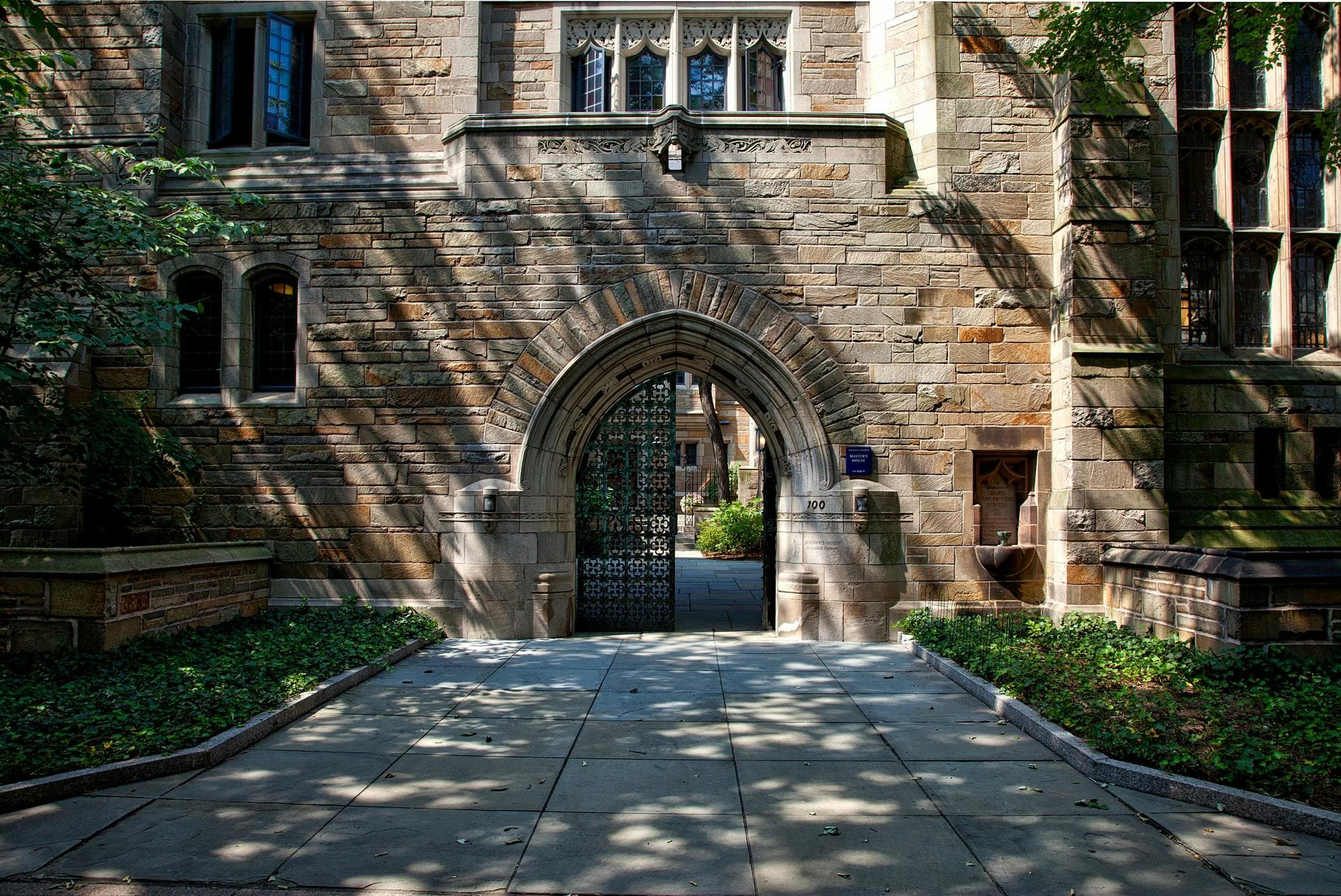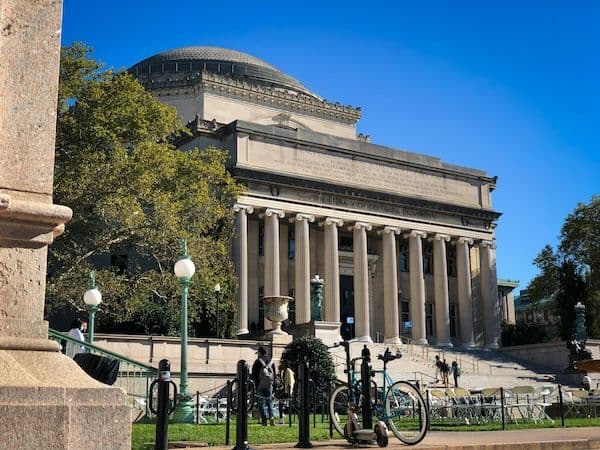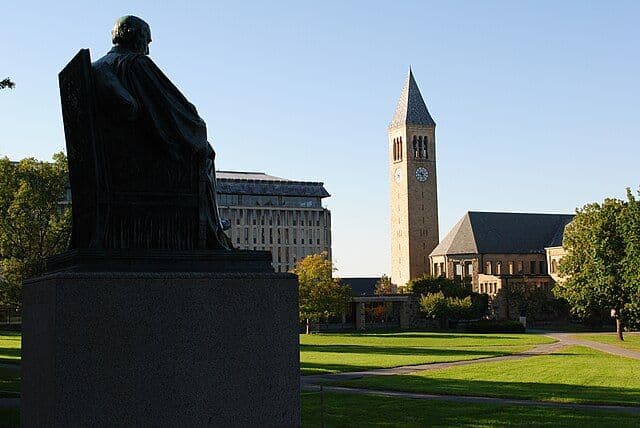
The Impact of a Cornell Education
Join us for an interview-style blog looking at the impact of a Cornell Education through the eyes of a Cornell alumnus.

By Cornell University. Public Domain.
Many Ivy Tutors Network students are interested in - or fully committed to - an Ivy League education. To facilitate each student’s exploration of the right school fit, we’re doing a series of blogs looking at how to get into each of the eight schools, and pairing them with an interview from an alumnus of that school. We plan to explore other Top 25 schools and HBCUs next. If what you’re hearing sparks interest, we encourage you to speak with your guidance counselor or one of our college admissions counselors to work on an admissions strategy.
Find the partner piece, How to Get Into Cornell: Advice from a Former Director of Admissions at Cornell, here.
An Interview with Zak Benedek
Zak sat down with IVY's College Essay Director, Justin Taylor, to talk about his road to Cornell, his college experience, and the effect it's had on his professional life.
JT: Tell me about your path to Cornell.
ZB: I was a guaranteed transfer. I spent my first year at Brandeis and then transferred into Cornell's ILR School—Industrial and Labor Relations—after meeting academic requirements. Initially, I wasn’t sure I would transfer, but the major appealed to me, especially since I hadn’t declared a major at Brandeis. ILR was something specific and interdisciplinary that made sense for me.
JT: What’s distinctive about the ILR major?
ZB: Everyone majors in ILR, but the direction you take depends on your coursework and any minors. I minored in Education. Within ILR, I studied labor law, labor management, labor history, organizational psychology, economics, and statistics. It’s a blend of business, law, social sciences, and policy—all focused on the world of work.
JT: What kind of students did ILR attract?
ZB: There was a healthy mix. Some went on to law school, some into consulting or HR, others into labor organizing. It wasn't a single personality type. That mix kept things interesting.
JT: What professional impact did Cornell have?
ZB: For me, the most valuable impact came from the Education minor. I did field work in local schools—elementary and middle schools, after-school programs, and even adult education. That hands-on experience helped me realize I enjoyed education and mentoring. Now I’m stepping into a full-time role as an Education Specialist with Ivy Tutors.
JT: Were there courses or skills from ILR that stayed with you?
ZB: Absolutely. Labor history, in particular, opened my eyes to the evolution of work and workers' rights. The program instilled a lasting appreciation for treating people with empathy and dignity—regardless of job or pay level. That perspective has influenced not just my career, but how I see the world.
JT: Did Cornell’s academic structure support that kind of growth?
ZB: Definitely. Having already earned credits in high school and through a Cornell summer program, I had some academic breathing room. I got to focus on the classes I really wanted to take, and the curriculum filled in big gaps in my understanding of the working world.
JT: Did you experience a difference in academic culture compared to Brandeis?
ZB: Brandeis was rigorous too, but the big shift was personal: transitioning from high school to college at Brandeis was a challenge. By the time I got to Cornell, I was better prepared. Still, some subjects—like statistics—required extra focus. I had to drop stats my senior fall and take it intensively over winter break with tutoring help. That kind of academic flexibility was crucial.
JT: How about extracurriculars?
ZB: I was part of a sketch comedy group. It was one of the most important communities I found at Cornell. That group became a huge source of friendship and creative expression—and even shaped my life beyond school. I met my wife in that group. We're still connected to people from it, including the couple whose wedding I was heading to the day we spoke.
JT: Has the Cornell alumni network played a role in your post-grad life?
ZB: Not formally. My connections have come more through personal community than official alumni channels. For example, someone from another Cornell sketch group now works at Pixar, and I got to do some voice work on a side project they were doing. That’s been one of my only organic animated gigs—and a great portfolio piece.
JT: Looking back, was Cornell worth it?
ZB: Yes—for me, absolutely. It was actually cheaper than Brandeis because ILR is a New York State school and I qualified for in-state tuition. The major matched my interests, the environment suited me, and I got to build a meaningful community. But I’d say: don’t go to an Ivy just because it’s an Ivy. Make sure the school offers something that fits you—whether that’s the curriculum, cost, setting, or culture. That’s what really makes it worth it.
Interviewee Bio
A former IVY student now turned team member, Zachary grew up in NYC and began teaching in high school as a student at Eleanor Roosevelt. He graduated from Cornell University, earning a B.S. in Industrial and Labor Relations at the ILR School (a.k.a: I Love to Read School) with a major in ILR and a minor in Education. With over a decade of experience in education and client support, Zachary teaches young students to master their work, gain confidence, and take pride in their abilities.
Ready to start your own college admissions journey and find the right schools for you? Set up a free consultation today.




